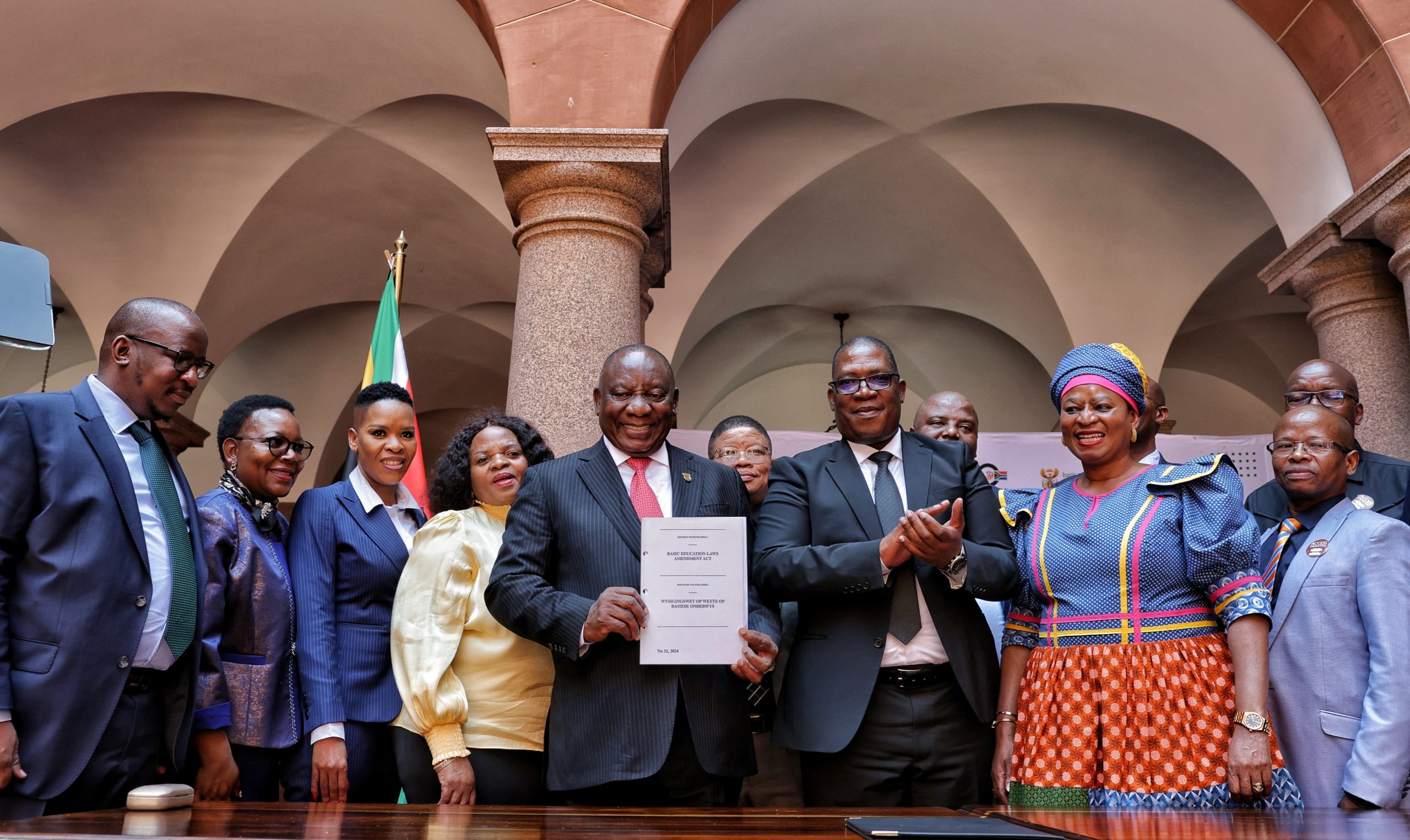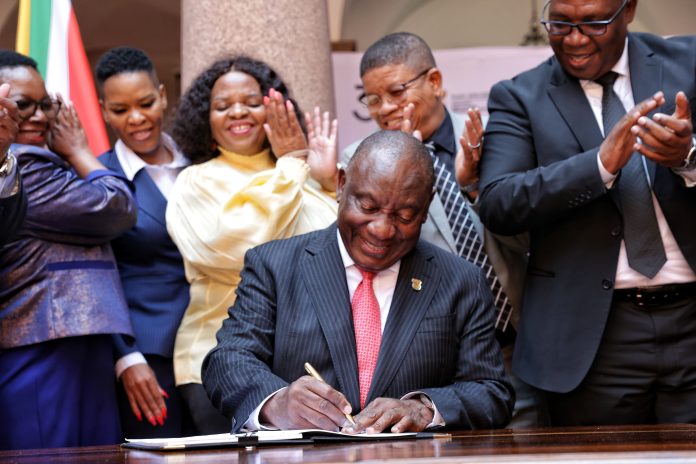Most parts of the contraversial Basic Education Laws Amendment (BELA) Bill have officially been signed into law, and are ready for implementation – with the exception of two clauses in it. President Cyril Ramaphosa signed it into law on Friday, despite pushback from the Government of National Unity partner (GNU), the DA.
Earlier this week, the Presidency announced that it would be signing the bill, which the DA warned would threaten the stability of the GNU. Presidency spokesperson, Vincent Magwenya, noted that the signing would go ahead nonetheless, noting that the president’s decision is not subject to agreement from any other party or person.
Minister of Basic Education Siviwe Gwarube opted to boycott the signing ceremony held at the Union Buildings in Pretoria. Gwarube, just like her DA counterparts, believes that parts of the bill would present constitutional implications in the education sector.
READ MORE: BELA Bill to be signed into law, DA warns it could derail GNU
Despite this, the signing ceremony went ahead, with Ramaphosa acknowledging the importance of the Bill in shaping the future of education.
“This law is part of our ongoing effort to create a world in which all children have access to good education.”

Contentious clauses to be reviewed
Despite the Bill’s signing, not all provisions will be implemented immediately.
Ramaphosa says a three-month delay in the implementation of clauses 4 and 5, which pertain to school admissions and language policies. These sections sparked significant debate, particularly around their impact on school governance and provincial responsibilities.
“In the spirit of cooperation and meaningful engagement, I have decided to delay the implementation date for clauses 4 and 5… to give the parties time to deliberate on these issues and make proposals on how the different views may be accommodated,” Ramaphosa explained.
He says if parties are still at a deadlock on these clauses after this consultation period, those clauses will be implemented, as is, with the rest of the provisions in the bill.
Grade R – compulsory
Another notable aspect of the Bill is that it makes Grade R compulsory. Concerns have been raised regarding the financial implications of this provision. Following the signing, Western Cape Education MEC David Maynier expressed his reservations.
“While we support extending the provision of Grade R, making it compulsory at this point will destroy provinces financially. The National Treasury has indicated that no funding is available, and provinces will once again be left to find the money to cover this R17.7 billion unfunded mandate on their own.”


